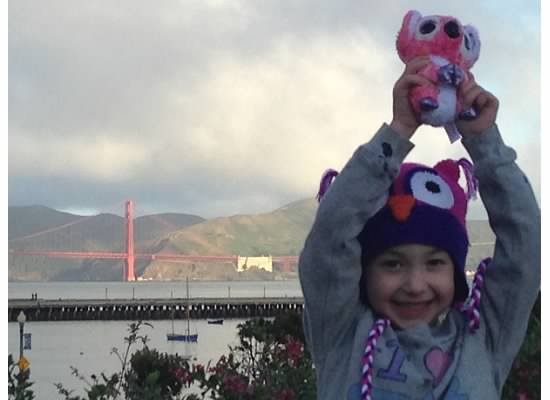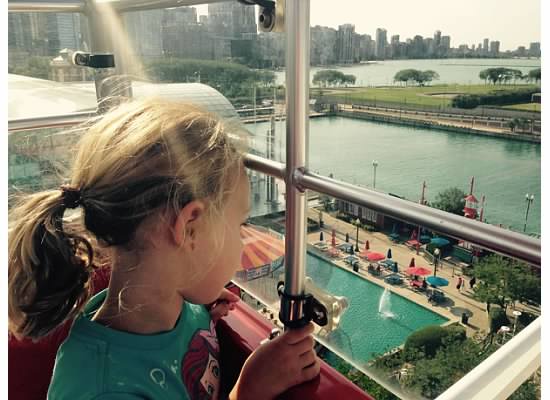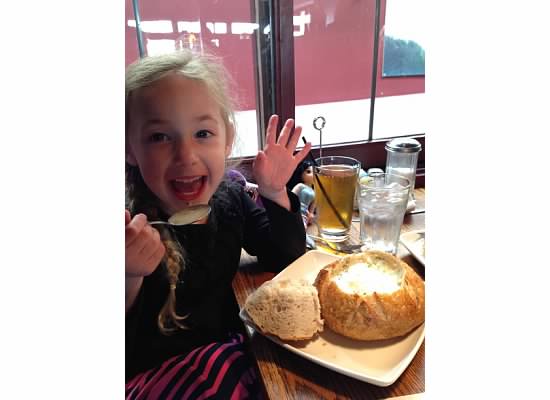by Sunny
follow me on Twitter @Sunnylooksleaps
I’m a teacher so it will come as no surprise that I like to find the educational value in my daughter’s extracurricular activities. I firmly believe that no other activity will educate children in the same way as traveling. There are the obvious things they can learn when visiting a museum or learning phrases in a new language, but there are so many other things they learn as well.
Appreciation: I feel that teaching my child appreciation is one of the most important and daunting tasks as a parent. I want her to be thankful for what she has, the opportunities she has experienced, and the moments we share as a family. Journaling about our trips and including funny anecdotes help us to remember the fun. Capturing both posed and quiet moments on camera also remind us to appreciate our time we have spent traveling as a family.
Social skills: Airplanes, trains, subways, buses and ferries all offer chances to get to know fellow travelers as well as locals. While most adults typically ignore each other on public transportation, kids have an innate ability to start a conversation with just a smile. I have some very sweet memories of MJ chatting up a local woman on the light rail to St. Louis, Missouri about going to see our beloved Cardinals. She loves telling those on the DC metro that she is visiting her aunt and uncle. And meeting other traveling families on public transportation and then seeing them again at local tourist attractions always brings a smile to MJ’s face when she recognizes them. Even just traveling within the US, there are cultural differences from coast to coast that MJ has learned about along the way. From getting along with Cubs fans at Wrigley Field, to making friends despite a language barrier I feel that travel has created a more tolerant, respectful citizen in MJ and given her practice with social skills she will continue to hone throughout her life.
Flexibility: In a time where kids tend to be overscheduled between school, sports, music lessons, and friend time, it is necessary for some downtime to be worked in as well. Lately, I have heard more parents confess that the only time their family does anything together (activities, meals, etc) is when they are forced to on vacation. I’ve noticed more and more parents taking advantage of school breaks and holidays to travel with their families. This gives kids and parents some needed chill time, but even the best made vacation plans rarely go off without a hitch. Planes will be delayed, a museum will be closed for renovation, a day of rain will call off plans for the beach. To some this could be a nightmare, or it could be an opportunity to try something new. Show kids that planning ahead is important, but having flexibility in your plans could open up a whole new world of possibilities. This goes for food, too. While I wouldn’t describe MJ as picky, she is game for trying almost anything when we are traveling, especially if it is served sample-sized at a public market!
Map skills: I can remember being my dad’s navigator on trips to Hawaii, Arizona, and California. I can remember my sister, April, teaching us the ropes of using the DC metro. And when my husband and I were young and without much disposable income, I remember poring over the US Road Map book and dreaming about future trips we would take together. Give the kids the reigns (with a little guidance, of course) and let them try to navigate the public transportation system or your next road trip. Map skills are typically taught in math and social studies classes, but giving it a real-world application not only makes the information valid but helps it stick. Kids can learn navigating skills that are somewhat lost in the age of the GPS, and it also forms a cooperative bond. Everyone works together on a common goal of getting to the next stop on the trip, Will you sometimes travel in the opposite direction? Yes. Will someone get frustrated along the way? Probably. But remember to be flexible and positive. As they say, getting there is half the fun!


